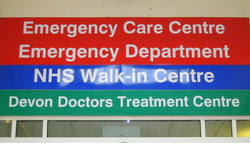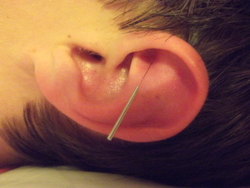
A feasibility study undertaken at the Northern Hospital Emergency Department, Melbourne, Australia, shows that acupuncture can provide patients with effective relief from pain and nausea. The study drew on data from 400 people visiting the department with these symptoms. The acupuncture group comprised 200 patients who received usual care plus acupuncture. For comparison, retrospective data was gathered on 200 closely matched patients who had received usual care alone.
A satisfaction score of 10/10 was given by 57% of patients receiving acupuncture; 52% responded “definitely yes” for their willingness to use it again, and a further 32% said “probably yes”. Adverse events were rare and mild. Pain scores reduced from a mean 7.0 before acupuncture, to 4.7 afterwards. Nausea scores dropped from 2.6 to 1.4. Musculoskeletal conditions were most commonly treated, followed by abdominal or flank pain.
The researchers conclude acupuncture in the emergency department appears safe and acceptable for patients with pain and/or nausea and that combined care may provide effective pain and nausea relief. Further studies evaluating the cost-effectiveness and efficacy of the add-on effect of acupuncture are recommended.
(Acupuncture and standard emergency department care for pain and/or nausea and its impact on emergency care delivery: a feasibility study. Acupuncture in Medicine, 7 March 2014, epub ahead of print.)



